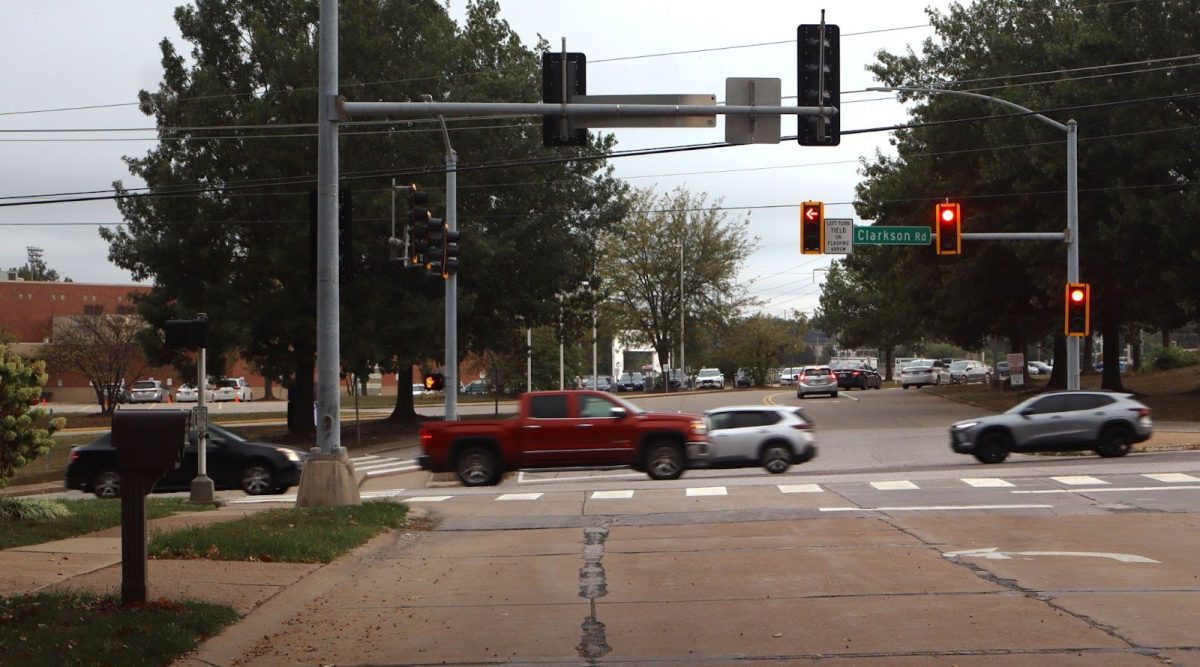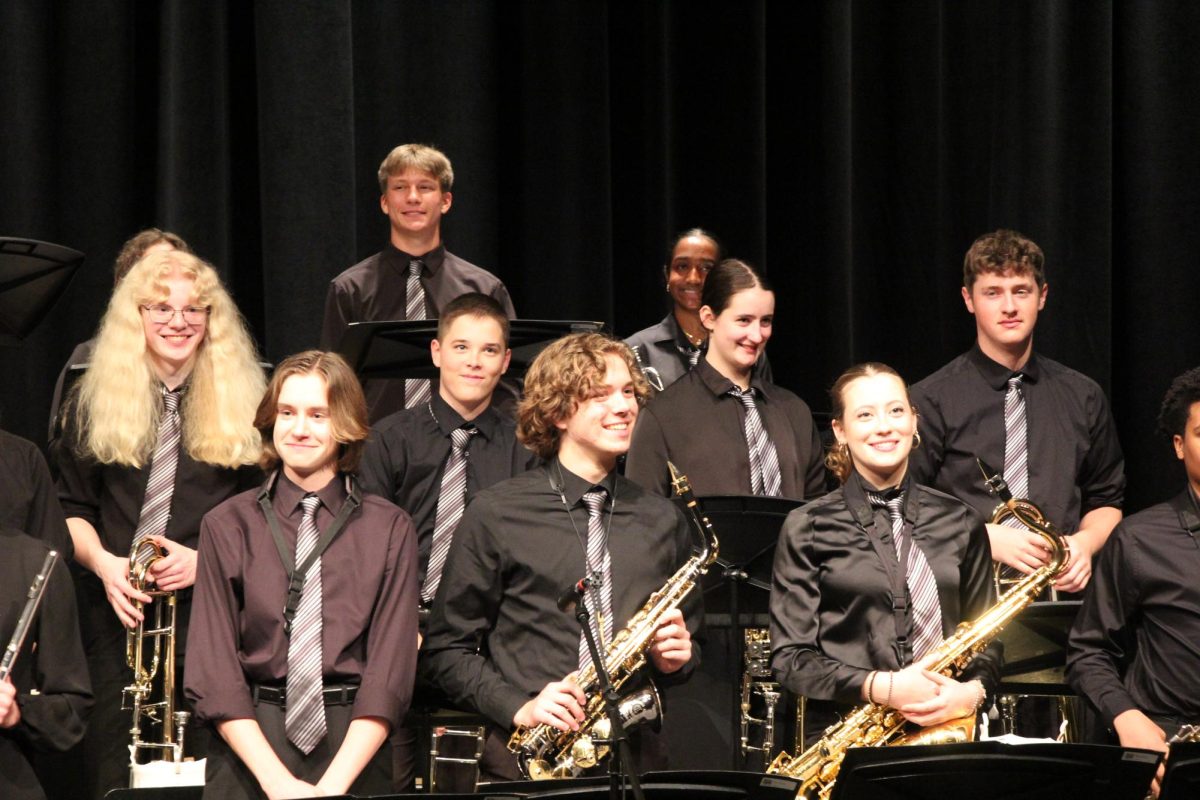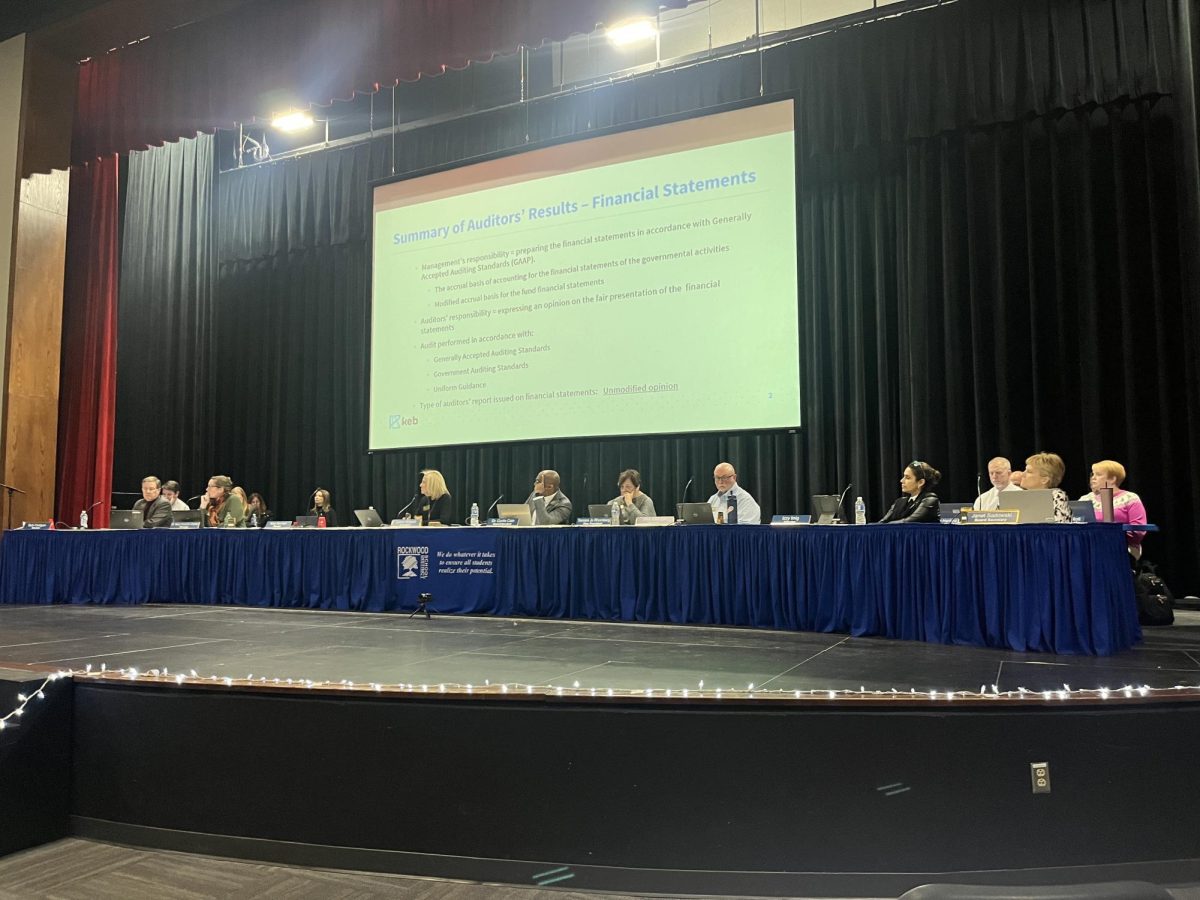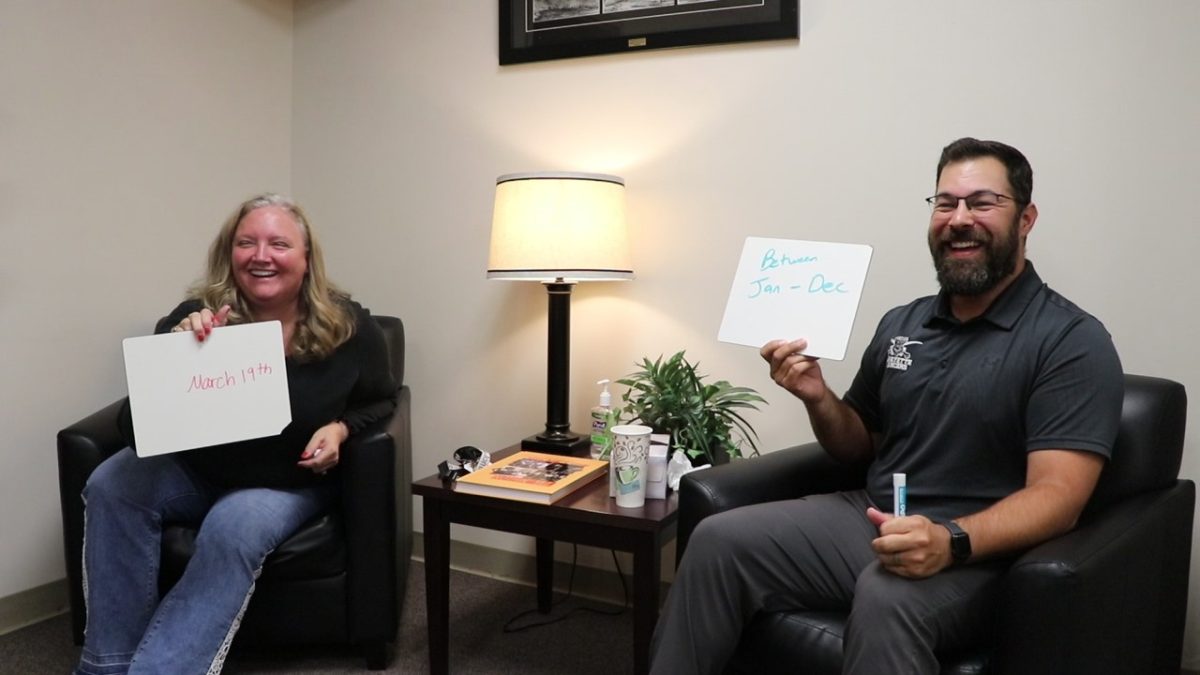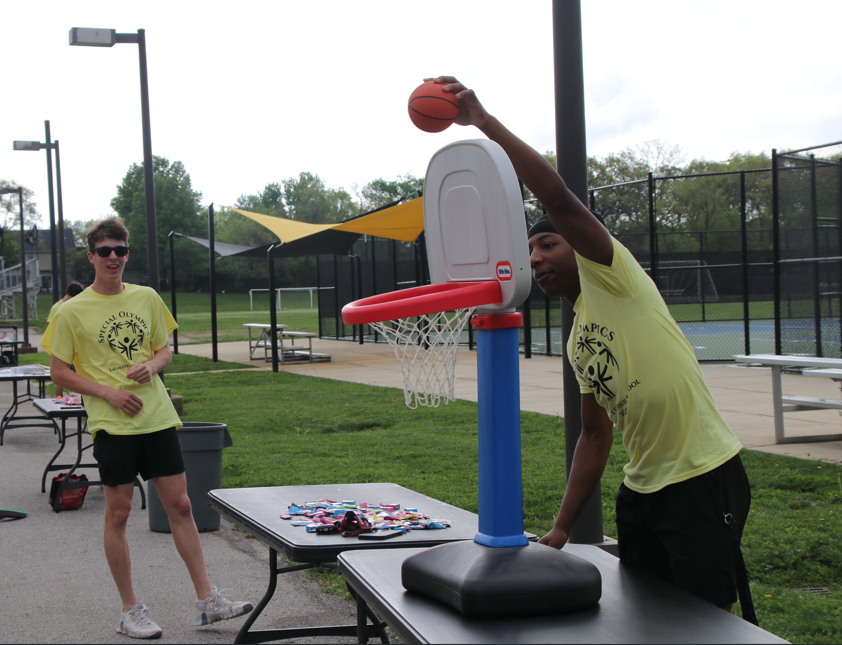New Phone Practice, Who Dis?

Having been updated this year, Rockwood’s phone practice is now enforced district-wide, whereas in previous years, schools were able to create their own guidelines for personal technology use as they saw fit.
“Prior to this year, different schools had different guidelines. This shift was intended to have more consistent guidelines across the district,” Mary Lapak, Rockwood Chief Communications Officer said.
This year, the district has set a baseline expectations that individual schools can build upon.
According to Lapak, the district expectation is: “Smartphones are not seen, used or heard during classroom instruction.”
Lapak said this is only a practice, not a policy, as policies are approved by the Board of Education.
On Sept. 5, 2024 the Board of Education Student Advisory Group, a group consisting of junior and senior students from Rockwood high schools, met with Directors from the Rockwood BOE. Lapak said cell phone use was discussed during the meeting and that students supported the restrictions on personal technology use.
Overall, Lapak said the district has reiceved a positive response to the updated practices.
“The constant buzzing and beeping of phones can interrupt lessons, divert attention away from important instructional materials, and hinder students’ ability to concentrate and engage with their studies, teachers and peers,” Lapak said. “It is our hope that students, staff, families and community members will continue to weigh in on this issue so we can continue to develop a districtwide approach that is reasonable and reflects the collective wishes of all those involved.”
While Lafayette also adheres to district practice, theirs differs because they leave the practice in each individual classroom up to the teacher.
“During direct instruction, a reasonable expectation would be that your technology is off [and] that you’re engaged in the learning,” Head Principal Karen Calcaterra said. “Beyond that, we believe that our teachers can assess for [themselves] in their classroom if personal technology devices would be utilized or warranted.”
The reason for this flexibility, Calcaterra said, is to allow different classes to permit phone usage as it relates to their course load and overall difficulty.
“We recognize our courses are vastly different and in some courses, a teacher might deem it necessary or want to include personal technology devices and in others it might not be necessary at all,” she said. “So we want to honor that evaluation and assessment by each one of our teachers.”
This means that phone practices can differ class to class.
“You will find that there are many changes in some of our teachers’ classrooms that include turning phones in for the entire class period or scheduling technology breaks. Some teachers utilize a holder and some simply say ‘I want it in your backpack for the class’” Calcaterra said.
While not all classes employ the use of phones holders, all teachers explain their personal phone expectations and disciplinary action at the beginning of each school year.
“Our teachers submit behavior referrals on a variety of behaviors, whether it’s tardiness or inappropriate behavior. Quite honestly, we have really low behavior referrals for technology misuse,” Calcaterra said.
The goal of Lafayette’s practice is also to help teach real-world etiquette.
“[The phone policy] is not only good in an instructional sense but also, I think it’s courteous. It’s rude to be on your personal device while your teacher is instructing,” Calcaterra said. “That would be like a student coming to a teacher for some assistance and then the teacher spends their time on their phone and not assisting you. We wouldn’t do that.”
Infographic By Maddy Cox
Eureka was one of the first Rockwood schools to implement a new school-wide phone practice, having done so at the end of the 2023-2024 school year. This year, they continue to follow those expectations.
“We don’t necessarily use the word policy, [it is] more of a classroom technology expectation and procedure,” Corey Sink, Head Principal of Eureka High School said. “It’s simply how we’re going to address the use of technology in the classroom, that’s the best way I can describe it.”
Eureka expects students to have phones completely put away and out of sight during class time, an expectation that is upheld by all teachers in the building.
“During instructional time, all technology is put away. Cell phones are out of sight, they’re off the desk, in a backpack, or some teachers have [students] place them in [calculator sleeves]. Same thing with earbuds. Chromebooks are closed or at a 45 degree angle, where the screen is not up,” Sink said. “If there’s a time during the lesson that the teacher needs to direct students to use their Chromebooks, they’ll tell them to do that at that time.”
While students are allowed to use their devices during passing period and lunch, the expectation of them being put away is in place even if students leave the classroom during instructional time.
“We do discourage students from taking their cell phone with them when they leave the classroom during class [such as] if they’re running to the restroom. What we have noticed is that, [leaving their phone] speeds the student back up to get to class quicker,” Sink said.
The goal of this expectation is to keep students focused on school work during class time.
“[Phones] have almost become something where if it is sitting on the desk, even if it’s turned over, and it pings, you get that feeling that you need to check it. Even responding to a quick text, it doesn’t take long to have your attention drawn away from the lesson,” Sink said.
While Sink believes phones can be used as an instructional tool and can be extremely helpful if used correctly, he said that Eureka had not seen that happening on a day-to-day basis.
“If I truly thought that the cell phones were an instructional tool that we could harness in a positive way, we wouldn’t be moving in this direction,” he said. “I do believe they can be used as an instructional tool, [but] that wasn’t what we were seeing on a day to day basis.”
Since implementing the school-wide policy, Sink said the feedback from staff, parents and even students has been mostly positive.
“Our kids were kind of hesitant, but we got a lot of good feedback where kids said ‘yeah, it has made a difference, I feel like it’s not a distraction for me in the classroom as much, the discussions are richer, I’m paying attention more’” Sink said. “We’ve had an overwhelmingly positive response from our parents too. They understood why we were doing this and they don’t want their students distracted in the classroom, [but] they also want to know that [students] do have access to their cell phone if necessary.”
In recent years, Marquette’s phone practice has not changed at all, continuously adhering to district expectations. This year, the only change was rooted in communicaton.
“The big thing that changed for us is just a universal building expectation of how to communicate our policy to students,” Tracey Waeckerle, Head Principal of Marquette, said.
This change comes from Summit’s discussion with staff members about the biggest distractions in the classroom and what could be done to reduce them. Their practice, however, has remained a building-wide expectation.
In order to more clearly communicate the practice to students, a written statement was sent out prior to the school year and all teachers have worked to ensure they have the same expectations as one another.
“There’s a lot of research on teenagers, adolescents and technologies and how overwhelming it is right now. In combination with all of that, we implemented a plan that during instructional time, personal electronic devices including cell phones, headphones, AirPods, smart watches, tablets, Chromebooks, all of that shouldn’t be out or used during instructional time,” Waeckerle said.
In order to better enforce the practice this year, Marquette took extra measures to ensure expectations were clearly communicated to students.
“That was the communication that was sent out to all of our families [and] students, and that was the message that staff shared with students when they came back. During instructional time, everything needed to be put away. That looks different in every class period, what instructional time looks like,” Waeckerle said. “But our goal was to limit as many distractions as possible. Students are doing electronic communication, so we’re trying to encourage more face-to-face interaction.”
The reason for this change, Waeckerle said, was not only as a way to minimize distractions but potentially minimize opportunities for cyberbullying.
“We believe that technology restrictions during class also limit the possibility of negative electronic social interaction and creates greater social and emotional safety for our students,” Waeckerle said.
This initiative not only addresses distractions but also fosters a more positive and supportive classroom environment for students.
“All the things that could possibly stem from students using technology in a negative way during class, outside of just the distraction, we’re hoping that it limits the possibility for other things happening down the road with social media and things like that,” she said. “It was kind of a combination of both of those, both removing the distraction but also limiting access to things that could potentially lead to negative social interactions electronically.”
Waeckerle said students and parents alike have seemed to respond well to the practice.
“Our students are more focused in classrooms without the distraction of unnecessary technology use, [and] our teachers are reporting that students are participating in meaningful and engaging conversations with their peers.”
Rockwood Summit is also using the same phone practice they have in previous years, however, additional expectations were added to ensure its clarity.
“We specified our phone policy this year,” Emily McCown, Head Principal of Rockwood Summit said. “We had it as part of our student expectations last year that phones just needed to be put away. We weren’t very specific on that, we kind of let teachers determine what that might look like in their classroom.”
This change was rooted in teachers’ concern about the inconsistency of the policy affecting students.
“I think teachers were finding it hard and they were finding [phones to be] more and more of a distraction. It was just taking a lot of time and effort on their part to constantly remind kids to put their phones away,” McCown said.
While some staff members did not struggle with the original, flexible policy, McCown has found that having a universal policy helps students understand the expectations.
“Some teachers really didn’t have a problem with cell phones, but the teachers that did found it really difficult to implement any kind of expectation because kids were getting different messages in different classes.” McCown said.
Starting off the school year, teachers worked to ensure they were all communicating the same phone expectations to students.
“We kind of hit the ground running on day one as a collective effort to make sure that communication was very clear to our students,” McCown said. “We put some common signs up in classrooms to support teachers, [that said] cell phones and earbuds all need to be in backpacks during class time.”
The updated expectations also touch on expectations for all technology in the classroom.
“We talked about good classroom practices in terms of having laptops down at a 45 degree angle. If you’re instructing, kids shouldn’t be on their Chromebooks at that time. [This is] a way to minimize some of the distractions that Chromebooks could have as well,” McCown said.
is true for the grade-level principals as well.”
While there has been an increase in phone-related office referrals McCown said, the practice has radically improved classrooms.
“Overall teachers have responded that this has made a huge difference in their class, despite the occasional write-up,” she said.
Your donation will allow our student journalists to continue their work. You may become a PATRON by making a donation at one of these levels: White/$30, Black/$50, Gold/$100. Patron names will be published on the website and once per quarter on our social media accounts.












